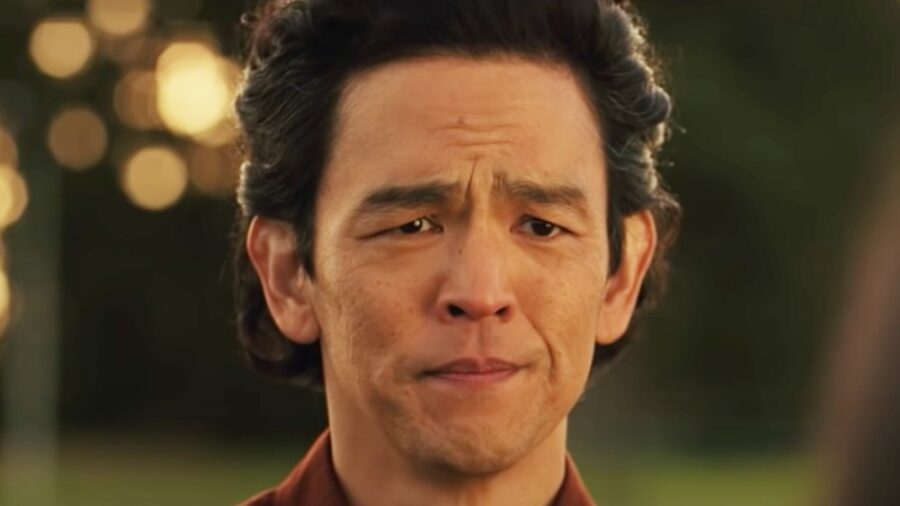
★★★☆☆
John Cho and Mia Isaac star as a father and daughter on a road trip in Hannah Marks’ sentimental and mildly effective family drama.
John Cho plays Max Park, a single father to Wally (Mia Isaac). Wally’s mum isn’t a part of their life and we get the sense that there’s some tension there. Max finds out he only has a year to live, due to a large tumour in his head, so he takes it upon himself to cram in as much father-daughter bonding as possible and takes Wally, who is blissfully unaware of her father’s condition, on a road trip.
He tells Wally he’s heading to a class reunion, which is true, but he only wants to go because he suspects Wally’s mother might also attend. Just guess how well that trip goes for the pair. Don’t Make Me Go takes the familiar road trip narrative and doesn’t even try to subvert it, simply relying on the power of good acting to make a lasting impression.
The film begins with Wally’s voiceover, stating “You’re not gonna like the way this story ends. But I think you’re gonna like this story.” And in fact, that statement turns out to be largely true, but maybe just not in the way director Hannah Marks intended.

Don’t Make Me Go is completely carried by the charming performances of Cho and Isaac and their believable dynamic together. There’s nothing surprising or special about Marks and writer Vera Herbert’s narrative to make Don’t Make Me Go rise above similar titles, such as Me and Earl and the Dying Girl or Five Feet Apart. The terminal illness trope is at worst offensive, but usually just feels tired and lazy, much like it does here.
Yet, Don’t Make Me Go is so earnest and almost tooth-achingly sweet that it’s impossible to not like it. Sure, there are flaws but it all really comes down to such basic, recognisable human emotions and problems that you’re instantly swept away into them. This is largely thanks to Cho and Isaac who convince us that there’s something special about these characters and that we should keep watching.
The film’s soundtrack is filled with indie darlings and at times, it’s as if the entire film is purposely constructed to be quirky, fun and weird. The aesthetic is let down by the generic narrative, although Don’t Make Me Go does try to pull the rug from under you with a surprise twist, it just doesn’t do it particularly well.
The ending, to which Wally’s voiceover refers to, hurts. Of course it does, that’s how these films are designed to be. They’re carefully considered to pull on your heartstrings just enough to make you cry but you’re also supposed to come out of it feeling renewed and full of appreciation for the small delicacies of life. That’s missing from Don’t Make Me Go, making it forgettable and disposable.
This is one of those films that feels like they never end. Don’t Make Me Go doesn’t exactly outstay its welcome, it just somehow keeps going after you assume it’s done. A few films do this; they reach a major point of closure, you’re seemingly done, but somehow there’s still 20 minutes to go. Or an hour, if we’re talking about Les Misérables. By that point, your emotional capacity is running low and you’re forcing yourself to try and still care about what’s happening.

Don’t Make Me Go is the kind of film you watch once with your partner, have a good cuddle afterwards and ponder about the fleeting nature of life and everlasting love. Once the credits roll, you turn the telly off, pull your duvet up to your chin and sleep peacefully, knowing Marks’ film hasn’t disturbed, challenged or questioned any of your existing values or world views. By the next morning, nothing in your life will have changed.
It’s not a bad thing per say, but with actors as talented as Cho and Isaac, Don’t Make Me Go had so much more potential. It’s enjoyable and in no way do I regret watching it, but it’s only been 18 hours since I watched it and the details of it have started to fade away.
Don’t Make Me Go is streaming on Amazon Prime Video from today.

